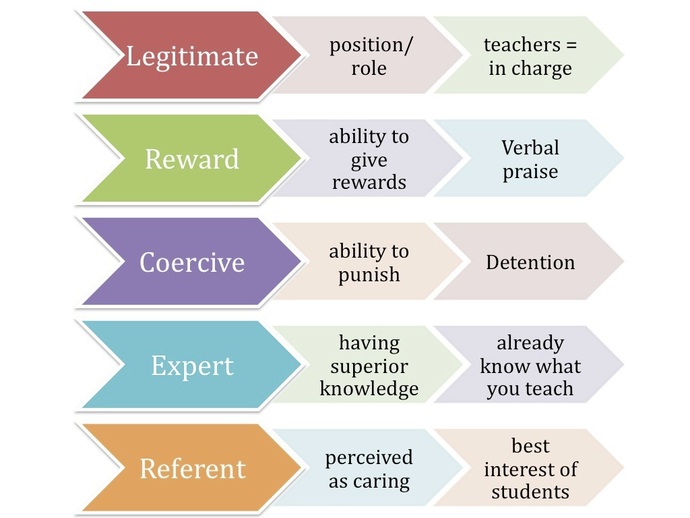Classroom Management & Discipline
Authority & Leadership

According to Savage & Savage (2010), there are five places from which authority and power can be derived. Where a person derives their power implies what type of leader they will become. Being a leader does not make a person great, rather, the type of leader they are defines their greatness. The five derivations of power and authority determine what type of a leader a person will become.
Please see the following organizer for a description of each as well to understand how each type of power applies to teachers as according to Savage & Savage (2010).
- Legitimate power and authority
- Reward power and authority
- Coercive power and authority
- Expert power and authority
- Referent power and authority
Please see the following organizer for a description of each as well to understand how each type of power applies to teachers as according to Savage & Savage (2010).
Savage & Savage (2010) suggest that, "...developing productive leadership in the classroom is based on the establishment of expert and referent authority" (p. 31). As a future teacher, I plan to establish wise and productive leadership by focusing my derivation of power on referent and expert power and authority. Practical examples of what I will do to establish referent and expert authority include doing the following:
- Always being prepared for class
- Demonstrating good teaching skills
- Being sensitive toward student needs, and
- Treating students with respect (Savage & Savage, 2010).
Proverbs 11:14a states that "Without wise leadership, a nation falls." The same can be applied for the classroom. The key to the success of a class is the leadership the class is underneath. Without the wise leadership of a teacher, the class will not succeed.

